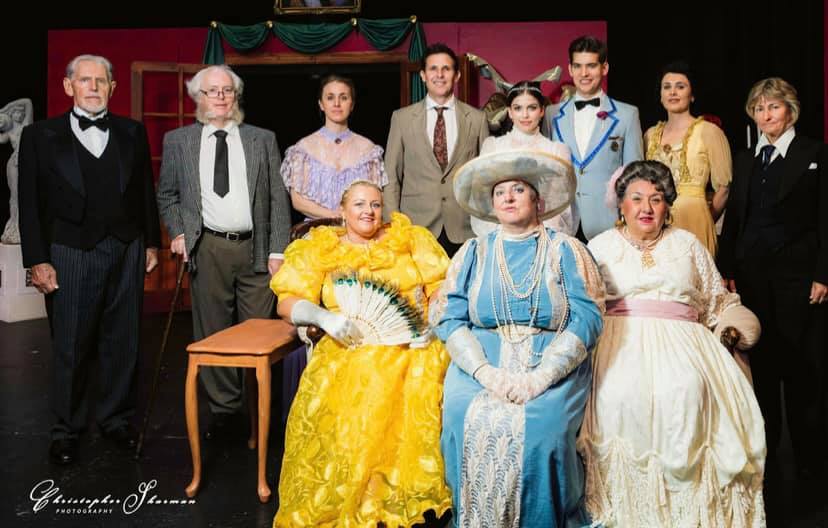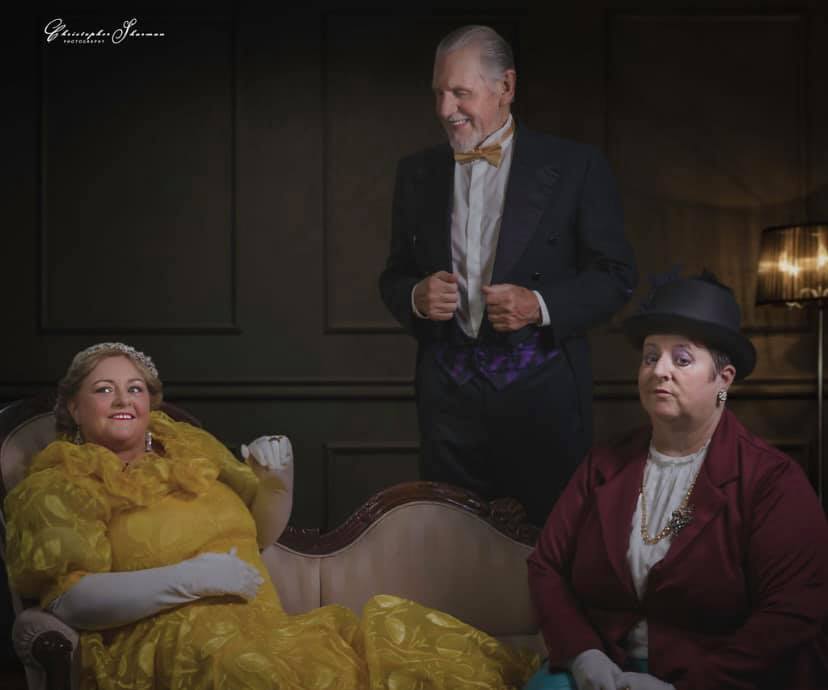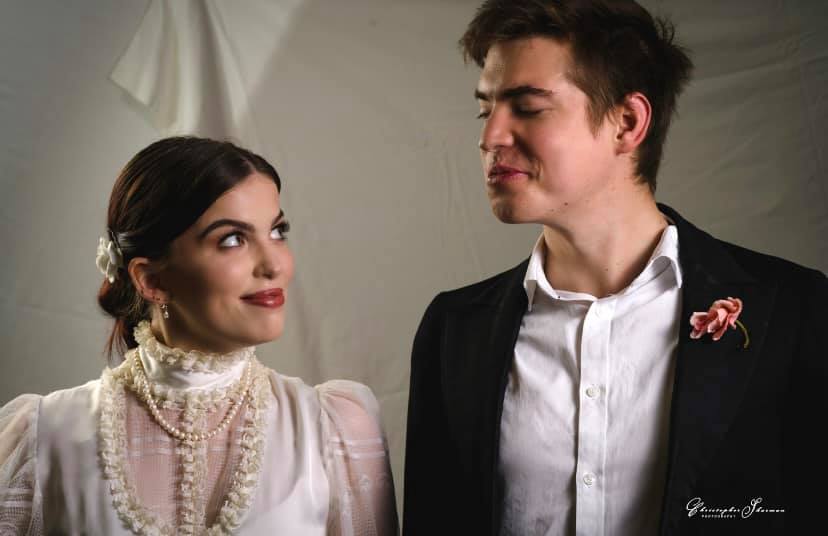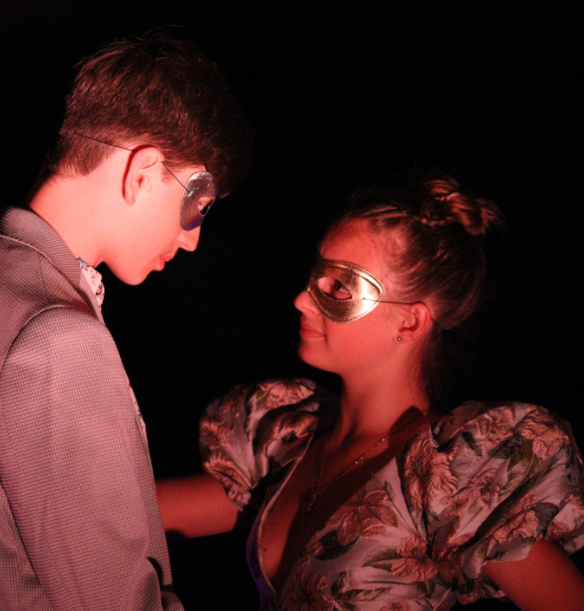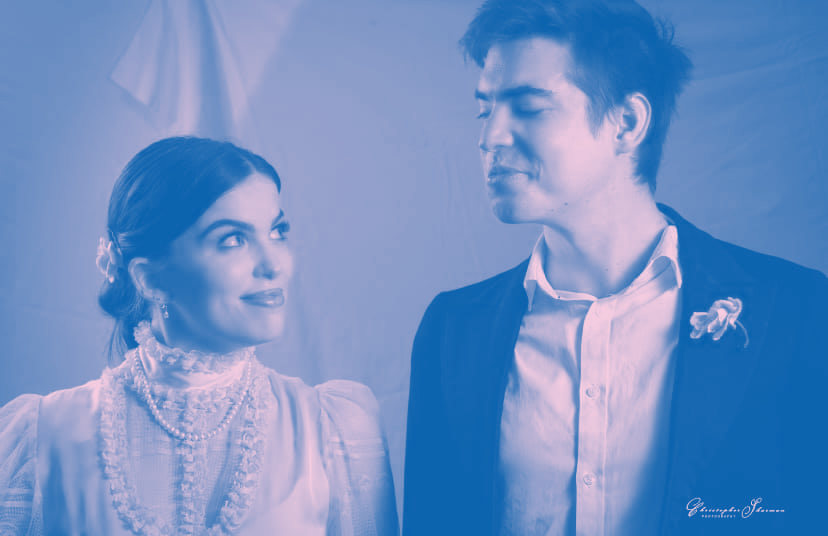
‘An Ideal Husband’ // Villanova Players
‘An Ideal Husband’ was charming.
Oscar Wilde’s 1895 play ‘An Ideal Husband’ was brought to life this month by local community theatre group Villanova Players in the recently built Ron Hurley Theatre at the impressive Seven Hills Hub. The Irish playwright and poet’s witty dialogue shone through the actors in a night of “looking at geniuses and listening to beautiful people”.
Taking place over 24 hours in Victorian-era London, the play explores themes of morality and honour, public versus private life, the “philosophy of power” and “gospel of gold”. Wilde examines the roles played by men and women in society, with a bit of political corruption and blackmail thrown in for good measure. The style of the show has been described as a “mixture of scandal and humour, melodrama and satire,” and the cast of 10 Brisbane actors certainly delivered on this characterisation.
‘An Ideal Husband’ has seen five film adaptations between 1935 and 2000. Perhaps most famous is the 1999 British version starring Julianne Moore, Minnie Driver, Jeremy Northam, Cate Blanchett, and Rupert Everett. Many theatre-goers are likely also familiar with Wilde’s ‘The Importance of Being Earnest.’
As the Villanova Players program summarises: “Sir Robert Chiltern is a respected government official and a loving husband. His friend, Lord Arthur Goring, is a notorious womaniser who lives a life of casual lounging… But when an old acquaintance, Laura Cheveley, arrives in London to stir up trouble, the lives of the two men become increasingly complicated and intertwined, and their true natures are revealed.”
Troy Bullock played Chiltern well: a character who began the evening confident and sure of himself was brought to his knees in tears as he grappled with losing his honour and the potential loss of the wife he loved so dearly. While the romantic chemistry and emotional vulnerability seemed overly reserved (perhaps purposely in line with the Victorian era), his sudden anger at Goring in the second act was well-delivered.
Oscar Kennedy Smith was a crowd favourite as the smarmy Lord Goring. His over-the-top expressions (think eyebrow-raising and almost cat-like head tilts) worked well to depict the character as a self-indulgent, conceited bachelor; he also portrayed genuine love and devotion in more serious monologues. Smith’s charisma demanded audience attention; the only mannerism he may consider dialling down was the small sigh before delivering a line, which seemed to increase in frequency in the second half.
Olivia Pinwill as Laura Cheveley played the villain expertly, with arch expressions and cool confidence, embodying Wilde’s description of “a genius in the day time and a beauty at night”. Pinwill may consider experimenting with the range in volume of her voice and her eye contact as there were times she appeared to be reciting lines to the audience in a loud monotone rather than engaging with her co-actors (though perhaps this was per Matthew Hobbs’ direction as the actors did not appear to be wearing microphones).
The supporting actors complemented each other, as well as the leads, to set the mood and tone of the play very well. Lillian Dowdell was a natural, stealing scenes and sparring with Goring as Chiltern’s sister, Mabel. Barry Haworth was wonderful as Goring’s disapproving but loving father, the Earl of Caversham. Rhonda Wood was consistently stolid as Chiltern’s dutiful servant; Alison Clark, Linda Stevenson and Elizabeth Morris hilarious as the three Ladies Basildon, Marchmont and Markby. Morris in particular delivered long monologues of frivolous nonsense exceptionally well, earning chuckles from the audience throughout. Ian Stevenson (who played both the French Vicomte De Nanjac and the stony-faced Phipps) won perhaps the loudest laughs with his servant’s perpetual “Yes, my lord” replies to Smith’s unrestrained Goring.
The standout performance belonged to Nathalie Cattaneo as Gertrude, Sir Chiltern’s wife. Cattaneo brought such authenticity to the role, with great timing and natural delivery; a beautiful portrayal of a smart, principled and devoted wife. While most of the leads flubbed a tricky line at one time or another in their often-quick delivery, Cattaneo was measured and consistently allowed the lines to land as they should.
The direction (by Hobbs, assisted by Wood) and technical components allowed the dialogue to feature as the star of the stage, for very little competed with the script for audience attention. Lighting (Rod Thompson) and sound (Maria Plumb, with music composed and played by Jayden Hobbs) were used only to signify scene changes. A full blackout could be considered to prevent the audience from seeing Gertrude stand up and walk off stage as if she hadn’t just been doubled over in agony; a shattered glass sound effect could be used after Goring pulls back his arm in an imaginary hurl of his goblet. Additional music may have also helped signify the shifting mood throughout the play: from flirtatious party atmosphere to impending political or personal ruin.
There was essentially one set per act: the parlour of either the Chilterns or Goring. Set design by Leo Bradley (with construction by Lucy Moon, Lorraine Fox, Graham Wood, Rhonda Wood, Gretel Spizick, Angie Goh and Robert Spence) featured a portrait of the Chilterns, a Greek statue, wooden furniture, bright red walls and garish green curtains, fake flowers in a giant green vase, and a chesterfield for Act I. This was adjusted with a new blanket on the chesterfield, wallpapered panels to change the background, and a portrait of Goring for Act II. Prop design by Goh added some nice touches: crystal bar glasses, letter-writing paper, and a sparkling broach-turned-bracelet were well-used to further the plot. Costuming by Leo Bradley, Alison Clark and Lia Surrentino were elaborate, with period dresses, hats and jackets. They may consider splurging on less cheap-looking feathers and slightly less garish colours for some of the ladies’ dresses in future, but the jewelled headpieces were exquisite and the men’s suits spot-on.
Hobbs’ blocking kept the women mostly stationary; perhaps intentionally to show their lack of agency in Victorian times as compared with men. The use of beats, particularly for Lady Cheveley, could be explored to add weight to her pointed remarks; but the play kept a steady pace, building to a dramatic climax in the second act. Goring’s physical struggle with Cheveley and the mistaken identity scene brought fresh energy and were very nicely staged.
The overall experience was a justified performance of the text and a charming night of theatre, as the audience considered what it means to be an “ideal husband” as opposed to a “false idol.”
‘An Ideal Husband’ performs until Sunday, 21 March 2021 at The Ron Hurley Theatre. For more information and to view other upcoming productions, visit the Villanova Players Theatre Company’s website.
Photography by Christopher Sharman Photography.




